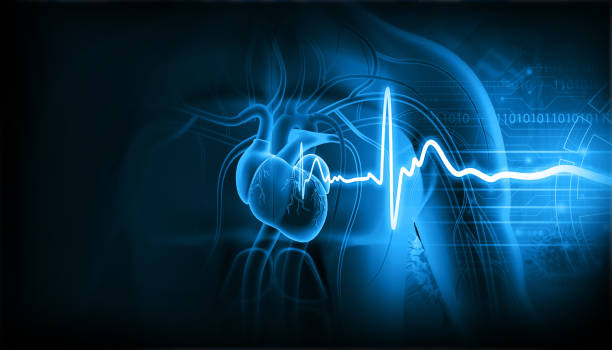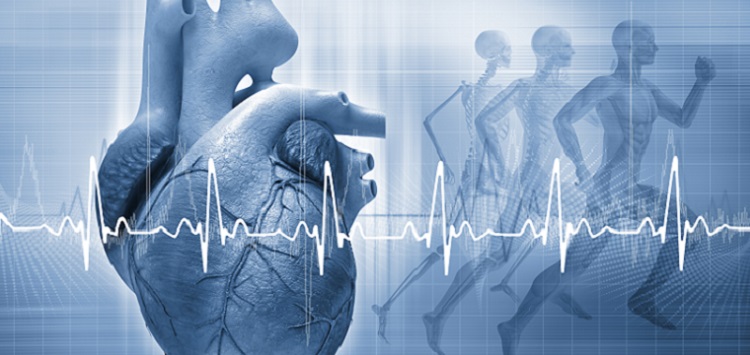Dr Garcia explains the link between stress and heart disease
Dr Garcia explains the link between stress and heart disease
Blog Article
Comprehending the Relevance of Cardiology in Modern Health Care Providers
Cardiology plays a crucial role in modern health care, specifically as heart condition remains to be the leading reason for mortality worldwide. Advancements in diagnostics and treatment have transformed individual treatment, allowing earlier treatments and boosted outcomes. Furthermore, the shift towards precautionary cardiology equips people to handle their health proactively. As technology remains to progress, the integration of cutting-edge options might better redefine cardiology's influence on public health, prompting a closer examination of emerging fads and their effects.
The Prevalence of Cardiovascular Disease and Its Effect On Public Health
Heart illness continues to be the leading reason of fatality around the world, its effect expands far past private people to influence public health and wellness systems and economic climates. The high frequency of cardiovascular disease puts a considerable strain on healthcare resources, necessitating enhanced funding for recovery, avoidance, and therapy programs. Public wellness campaigns have to resolve danger elements such as excessive weight, smoking, and less active lifestyles, which add greatly to the increasing incidence of heart conditions.Moreover, the financial concern related to heart disease is tremendous, incorporating not just straight medical expenses however additionally indirect expenditures related to lost efficiency and premature mortality. Neighborhoods face obstacles in taking care of these expenses, usually causing variations in health care access and end results. As the populace ages and lifestyle-related risks continue to escalate, the urgency for effective cardiology interventions becomes extremely important. As a result, resolving heart illness is not just a matter of specific health and wellness but likewise a crucial public health priority.
Developments in Cardiac Diagnostics and Imaging Techniques
Recent innovations in cardiac diagnostics and imaging strategies have actually transformed the field of cardiology, enhancing the capacity to identify and keep track of heart conditions. Methods such as cardiac MRI, CT angiography, and echocardiography have become significantly innovative, supplying thorough pictures of heart frameworks and functions. These methods permit for the early recognition of problems like coronary artery disease, cardiac arrest, and valvular disorders.Moreover, developments in non-invasive diagnostics, such as wearable innovation and remote monitoring devices, have actually encouraged patients and doctor. These devices help with real-time monitoring of heart rhythms and other crucial signs, resulting in prompt interventions. Additionally, artificial knowledge is being incorporated into imaging analysis, enhancing accuracy and effectiveness in diagnosis.
Technologies in Therapy Options for Heart Issues
Recent developments in cardiology have actually led to substantial developments in therapy alternatives for heart problems. These include sophisticated surgical strategies that boost procedural outcomes and arising drugs that supply new methods for treatment. As the area progresses, these advancements play an essential role in improving individual treatment and end results.
Advanced Surgical Techniques
Advancements in surgical methods have actually changed the landscape of cardiology, supplying brand-new wish for individuals with heart conditions. Minimally invasive treatments, such as catheter-based treatments, have significantly decreased healing times and medical facility stays. Techniques like robotic-assisted surgical treatment boost accuracy, enabling surgeons to browse complex physiological frameworks with higher accuracy. Moreover, developments in imaging innovation facilitate real-time visualization during procedures, boosting results. Transcatheter aortic shutoff replacement (TAVR) exhibits a development in treating aortic constriction, allowing shutoff replacement without open-heart surgery. Furthermore, hybrid methods that incorporate surgical and catheter-based methods provide customized services for different heart issues. These sophisticated surgical techniques not just boost client safety and security yet additionally expand therapy alternatives, emphasizing the vital role of technology in modern-day cardiology practices.
Emerging Drugs and Therapies
As the landscape of cardiology remains to progress, emerging drugs and treatments play an essential function in boosting therapy choices for heart disease. Technologies such as unique anticoagulants and advanced lipid-lowering agents have actually changed the management of cardio conditions, greatly minimizing patient morbidity and death. In addition, the growth of genetics treatments and regenerative medication uses promising opportunities for dealing with problems formerly regarded irreparable. Medical tests are continuously revealing the efficiency of these treatments, pushing the boundaries of traditional treatments. The integration of electronic health and wellness modern technologies facilitates tailored medication, enabling for tailored therapy plans based on hereditary and way of life aspects. Collectively, these improvements highlight the dynamic nature of cardiology, improving patient end results and redefining requirements of treatment in modern health care.
The Duty of Preventive Cardiology in Client Treatment
Preventive cardiology plays a crucial function in client care by concentrating on the recognition of danger factors that add to heart problem. With way of life adjustment techniques and early detection techniques, doctor can properly minimize the incidence of cardiovascular events - Cardiology. This positive strategy not only enhances person results but also advertises long-lasting health and wellness
Risk Aspect Recognition
While heart diseases stay a leading root cause of morbidity and mortality worldwide, effective risk aspect identification works as a foundation of precautionary cardiology. Determining threat variables such as hypertension, diabetic issues, family, and hyperlipidemia background is essential for early treatment. Health care professionals utilize numerous evaluating methods to review these aspects, enabling tailored preventive procedures. you can try this out In addition, comprehending a client's lifestyle options, such as smoking cigarettes and physical lack of exercise, better notifies danger assessments. This thorough assessment allows clinicians to establish tailored treatment plans focused on mitigating risks. By prioritizing risk aspect identification, health care systems can improve client results and minimize the total concern of heart diseases, ultimately contributing to enhanced public wellness approaches and resource allocation.
Lifestyle Adjustment Strategies
A multitude of studies highlights the important function of way of living adjustment techniques in decreasing heart disease danger. These strategies include dietary adjustments, boosted physical activity, smoking cessation, and weight administration. By adopting a heart-healthy diet plan abundant in fruits, vegetables, whole grains, and lean healthy proteins, individuals can reduce cholesterol degrees and blood pressure. Normal exercise enhances the heart and enhances overall cardio wellness. In addition, giving up cigarette smoking substantially minimizes the danger of heart condition and boosts recuperation rates for those with status quo. Weight administration further adds to cardio health by alleviating various other risk elements such as diabetes mellitus and hypertension. Implementing these lifestyle changes not only advertises specific wellness but also serves as a keystone of preventative cardiology in individual care.
Early Detection Strategies
Way of living alterations considerably add to decreasing heart disease dangers, yet they are most efficient when matched with very early discovery strategies. Preventative cardiology highlights the relevance of determining potential heart concerns before they rise right into severe problems. Methods such as blood stress tracking, cholesterol screening, and advanced imaging innovations like echocardiograms play crucial functions in assessing cardio health and wellness. Biomarkers and hereditary screening likewise boost the precision of very early discovery, permitting customized precautionary strategies. Normal cardiac risk evaluations encourage doctor to intervene proactively, possibly avoiding heart strikes and strokes (Cardiology). By incorporating these early discovery techniques right into routine care, people can gain from prompt lifestyle interventions and targeted therapies, ultimately boosting end results and improving lifestyle
Integrating Innovation Into Cardiology Practices
As improvements in innovation continue to improve different areas, the assimilation of innovative devices and systems into cardiology techniques has become important for enhancing patient care and outcomes. Telemedicine platforms permit cardiologists to keep an eye on people from another location, improving access to care while decreasing the concern on medical care facilities. Wearable devices, such as smartwatches, enable continuous heart price surveillance, alerting both physicians and clients to possible problems in real-time. Furthermore, fabricated knowledge (AI) is being utilized to assess vast quantities of cardiac information, helping in very early medical diagnosis and tailored treatment plans. Advanced imaging techniques, consisting of 3D echocardiography, improve visualization of heart structures, bring about much more precise interventions. Electronic wellness records (EHRs) enhance patient information management, making certain that cardiologists have prompt access to important information. With each other, these technical improvements are transforming cardiology, promoting positive monitoring and improved health results for people with cardiovascular conditions.
The Significance of Client Education and Engagement
Patient education and learning and interaction play a pivotal duty in the administration of cardio wellness. By gearing up patients with understanding about their problems, therapy choices, and lifestyle adjustments, doctor equip individuals to take an active function in their care. This positive strategy can bring about improved adherence to suggested medications, dietary adjustments, and workout programs, eventually lowering the threat of complications.Engagement likewise cultivates site link a strong patient-provider connection, urging open communication and depend on. When patients feel educated and included, they are most likely to voice problems and ask questions, which can bring about much better clinical results. In addition, academic resources, such as workshops or digital platforms, can enhance understanding and advertise self-management methods. Generally, prioritizing client education and learning and involvement is essential for enhancing cardiovascular wellness, enhancing lifestyle, and reducing health care expenses connected with cardio diseases.
Future Fads in Cardiology and Their Potential Impact

Regularly Asked Questions
What Way Of Life Adjustments Can Decrease Cardiovascular Disease Threat?
The existing concern addresses lifestyle modifications that can significantly lower cardiovascular disease risk. Cardiology Jupiter. Embracing a balanced diet regimen, taking part in regular physical task, preserving a healthy and balanced weight, taking care of anxiety, and preventing tobacco can significantly boost cardiovascular wellness
How Can I Acknowledge Very Early Indicators of Heart Problems?
Identifying very early indications of heart troubles involves surveillance symptoms such as upper body discomfort, shortness of breath, fatigue, and uneven heart beat. Prompt awareness of these indications can prompt necessary clinical examination and intervention for better outcomes.
What Are the Differences Between Cardiologists and Cardiac Surgeons?
The distinctions web in between cardiologists and heart surgeons hinge on their functions; cardiologists mainly diagnose and take care of heart disease via non-invasive approaches, while heart specialists carry out procedures to fix architectural heart problems. Each plays a crucial, unique role.

How Frequently Should I Obtain My Heart Wellness Checked?
The frequency of heart medical examination differs based on specific risk aspects. Normally, grownups must undergo evaluations every one to two years, while those with present conditions may require even more regular assessments as advised by medical care specialists.
What Function Does Genetics Play in Cardiovascular Disease Threat?
Genes considerably influences heart illness threat, with familial patterns showing inherited problems. Certain genes can incline individuals to hypertension, cholesterol issues, and other cardiovascular issues, highlighting the relevance of genetic testing in examining heart wellness. Heart illness continues to be the leading cause of fatality worldwide, its influence extends much past individual clients to impact public wellness systems and economies. Public health initiatives must resolve danger variables such as excessive weight, smoking, and less active way of livings, which add substantially to the climbing incidence of heart conditions.Moreover, the financial burden associated with heart disease is enormous, encompassing not only straight medical prices but also indirect expenses related to lost efficiency and early death. Preventative cardiology plays an important duty in client treatment by concentrating on the identification of danger aspects that add to heart condition. Fabricated intelligence (AI) and equipment learning are improving diagnostics and person tracking, allowing early discovery of heart conditions. The distinctions between cardiologists and heart surgeons lie in their roles; cardiologists mainly identify and take care of heart problems through non-invasive approaches, while cardiac cosmetic surgeons execute surgical procedures to remedy architectural heart issues.
Report this page